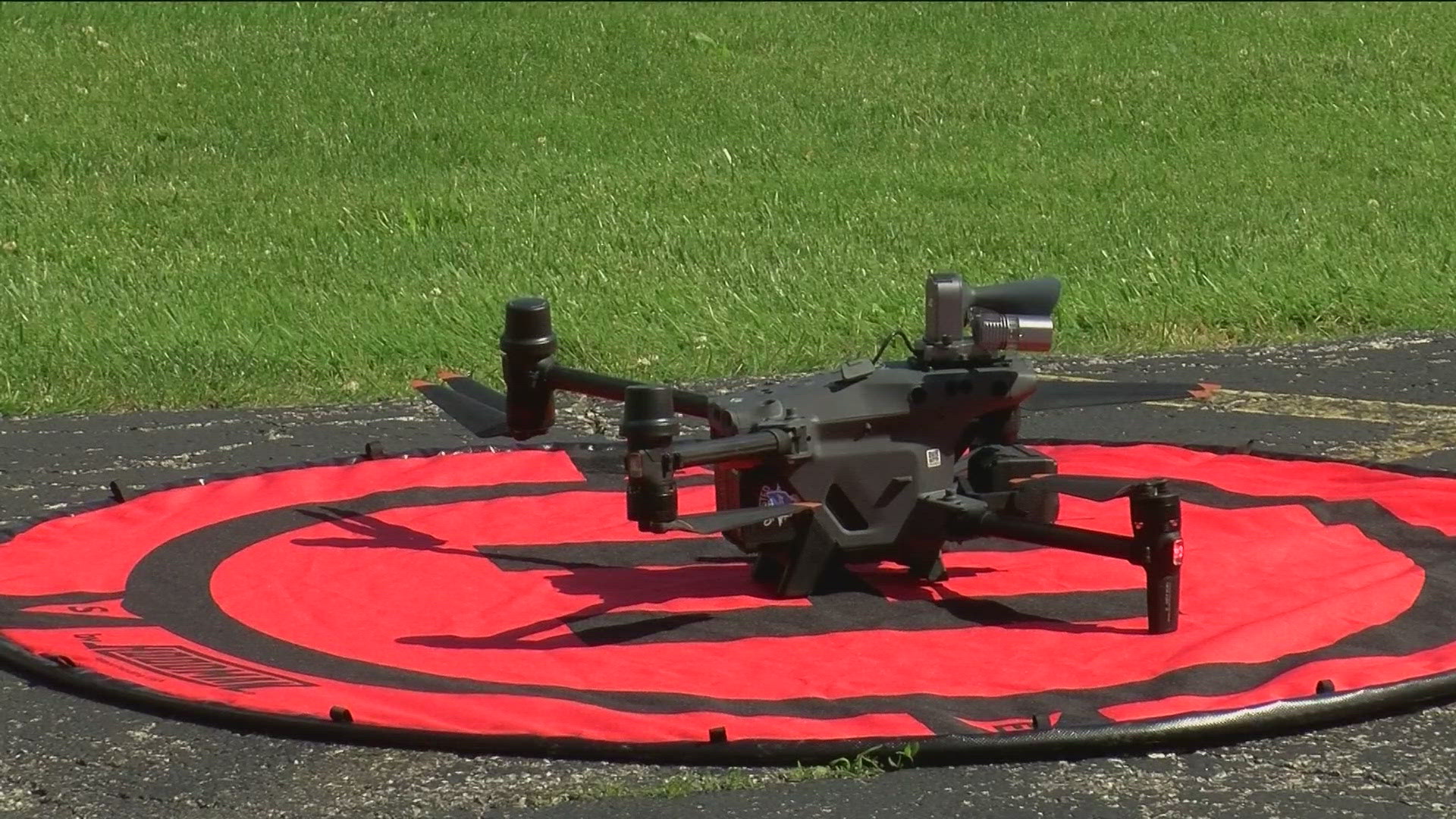TIFFIN, Ohio — The U.S. Senate is currently reviewing a bill to ban the Chinese-owned company, DJI, and their drones across the United States. First introduced in June, the U.S. House of Representatives passed the Countering CCP Drones Act in their version of the 2025 National Defense Authorization Act (NDAA).
The Senate version, introduced in early July, does not include this bill. If the bill passes, police officers and educators may have problems facing them ahead.
"When we're saving lives, which is most of what I do with drones, all of my life here at (Tiffin University) is about saving lives, protecting people and protecting my police with them," Bruce Chambers, drone educator at the University of Tiffin said. "I want something I can depend on and I unfortunately cannot depend on the blue U.S. drone yet."
Drone academy director and sworn deputy with the Seneca County Sheriff's Office, Owen Fritz, said proposed legislation in Washington could make it harder for him to do his job.
"If we have a situation, if we have an emergency, we're all about training. Training first responders is a lot of our outreach and education," Fritz said. "What the drone academy gets paid to do is go for the best possible drone that exists and right now, unfortunately, American-made drones are not there."
Fritz said the drones can mean the difference between life and death in emergent situations.
"There are two sides to this. We train a bunch of first responders at the drone academy. Every department that we pretty much work with uses DJI drones," Fritz said. "So it's one of those things that comes down to the reliability factor of the drone compared to the American-made blue drones. They can't compete."
Fritz said first responders and officers are against the ban, questioning state and federal choices.
"An overwhelming amount (of people) have pushed back on the ban. A lot of people have contacted their congressmen and women to figure out what's going on, where it stands and why," Fritz said. "Have they been educated themselves in what's going on with the ban? Did they understand fully what's going on? Does it really pose a security risk any greater than our cellphones or computers or laptops?"
Fritz expressed his frustration at the lack of communication between federal officials and drone educators.
"But at the national level, I haven't really seen anyone who's taken the time to come and listen to what's going on with the drone ban and what would be the potential impacts," Fritz said.
Chambers shared a similar sentiment.
"So now, if I say I'm going to take that tool away from you and give you one that doesn't really work, they panic, they're upset and they're angry," Chambers said. "Over the last few years, they're now relying on the drones where before, it was, 'We don't need it.' Now, it's, 'We need the drone.'"
From finding children and the elderly, to dropping medical supplies, Fritz said drone reliability is the most important, a factor he said American-made currently doesn't live up to.
"I would say it would cost people lives. An example is, we've tried to fly some American-made drones in a situation and it said it was too hot to take off. So it wouldn't take off in a situation where we needed it. So mission critical? It would fail," Fritz said.
And when comparing prices?
A DJI drone will still cost around $3,500, however, a blue American-made drone costs around $15,000.

